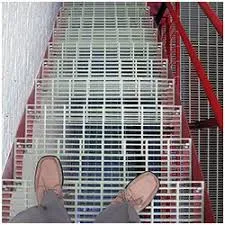Advanced FRP Vessels
The Advantages and Applications of FRP Vessels
Fiberglass Reinforced Plastic (FRP) vessels have revolutionized various industries, offering a multitude of advantages over traditional materials such as metal or concrete. With exceptional strength-to-weight ratios, resistance to corrosion, and versatility in design, FRP vessels are becoming increasingly popular in sectors ranging from chemical processing to water treatment.
Strength and Durability
One of the most significant benefits of FRP vessels is their impressive strength combined with a lightweight nature. Made from composite materials that include a polymer matrix reinforced with fiberglass, these vessels can withstand high pressures and temperatures while being significantly lighter than their metal counterparts. This property is crucial in environments where weight restrictions are critical, such as in offshore applications or portable storage systems.
Moreover, FRP vessels exhibit remarkable resistance to corrosion and chemical attack. Traditional materials, such as steel, can degrade over time when exposed to harsh chemicals or environmental conditions. In contrast, FRP is inert and can handle a wide range of chemicals without losing structural integrity, making them ideal for storing and transporting chemicals, acids, and other corrosive substances.
Versatility in Design
FRP vessels are highly customizable and can be designed to meet specific requirements for various applications. Manufacturers can mold FRP into complex shapes and sizes, allowing for tailored solutions that fit unique operational needs. This flexibility in design not only enhances functionality but also allows for the creation of aesthetically pleasing vessels that can seamlessly integrate into existing infrastructures.
Additionally, the modular nature of FRP construction allows for easy repairs and modifications. When damage occurs, it is often more straightforward to patch or replace sections of an FRP vessel than to conduct extensive repairs on traditional materials.
frp vessel

Environmental Benefits
In an era where environmental sustainability is paramount, FRP vessels offer eco-friendly advantages. The raw materials used in the production of fiberglass composites are often derived from renewable sources, contributing to a lower carbon footprint. Furthermore, FRP vessels are fully recyclable, providing end-of-life options that reduce waste in landfills.
Applications Across Industries
The versatility of FRP vessels spans numerous industries. In the chemical manufacturing sector, they serve as tanks for storing various substances, ensuring safety due to their non-reactive nature. In the food and beverage industry, FRP vessels are utilized for the transport and storage of liquids, offering hygienic solutions that comply with health regulations.
Additionally, in the water treatment industry, FRP vessels are increasingly used for filtration and storage systems due to their corrosion resistance and the ability to withstand fluctuating pressures. Their lightweight nature facilitates easier handling and installation, leading to reduced labor costs.
Conclusion
In summary, FRP vessels stand out as a superior alternative to traditional materials, offering a combination of strength, durability, and versatility. Their resistance to corrosion, customizable designs, and environmental benefits make them invaluable in various industries. As technology continues to advance and industries strive for greater efficiency and sustainability, FRP vessels are poised to play a significant role in the future of material science and application. Whether in chemical processing, water treatment, or beyond, FRP vessels are set to redefine standards and expectations in industrial storage and transport solutions.
Latest news
-
Oblate Tanks: Space-Saving, Durable Liquid Storage SolutionsNewsAug.27,2025
-
High-Performance Piping System Solutions for Industry & Commercial UseNewsAug.26,2025
-
Precision Fittings: Durable & Reliable Industrial & Plumbing SolutionsNewsAug.25,2025
-
Practical Steps: Unlock Success with Our Proven GuidesNewsAug.24,2025
-
Transport Tanks: Safe, Durable & Efficient Liquid HaulingNewsAug.23,2025
-
High-Quality Piping Systems for Efficient Flow & DurabilityNewsAug.22,2025











